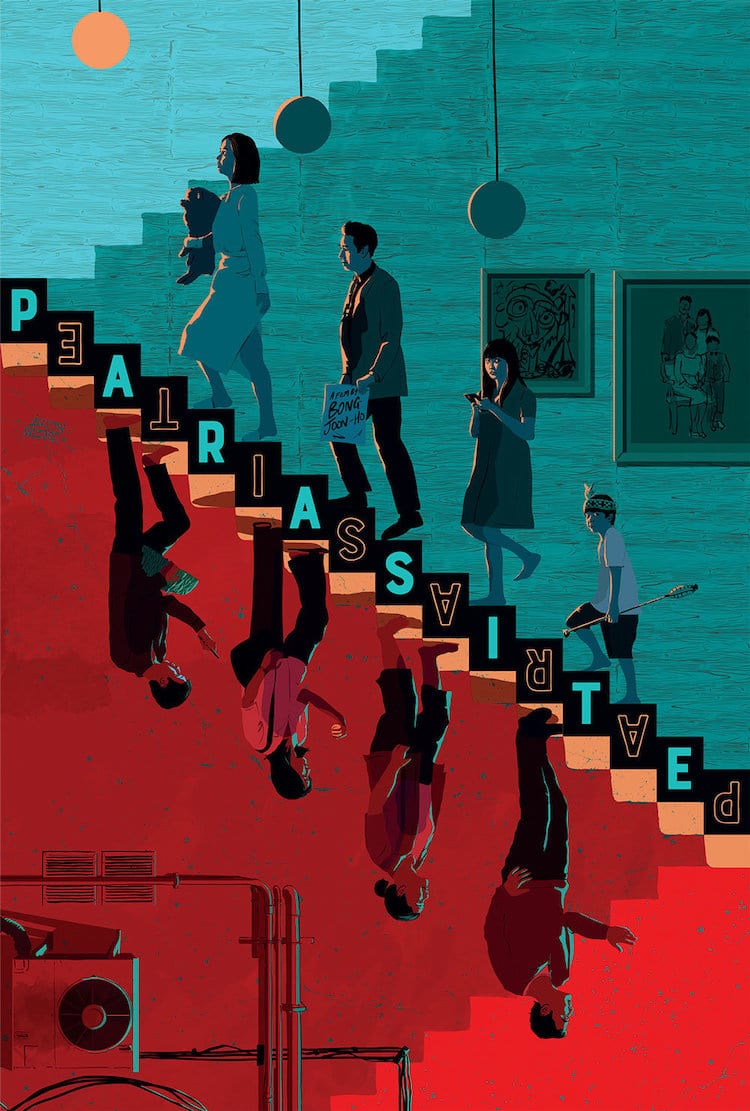Review: Parasite
There’s always that one person in your life that leeches off of you…
March 16, 2020

There’s always that one person in your life that leeches off of you: the sibling that asks for clothes that you’ll never see again, the friend who just so happens to forget their school ID for lunch every day, or that random uncle you see once every two years that tries to take your birthday money (No? Okay, understandable). However, the characters of Bong Joon-Ho’s (four-time) Academy Award-winning film Parasite embody parasitism in a far less innocent way.
This film follows the destitute Kim family comically infiltrating the lives of the wealthy Parks by eliminating the Park family’s staff and taking their places, foul play included. Whether it be through faking a college degree or falsely claiming to be an art therapist, the Kims are going to make sure that they make bank. Now although it seems as the poor are characterized as conniving and manipulative (yikes), the further you venture into the story, the more you realize that this parasitic relationship is not one-sided. If anything, the wealthy exploit the poor at an equal, if not greater, caliber: using their employees’ labor to their own advantage while lacking empathy for their plights and constantly committing microaggressions towards them–commenting on the Kims’ “poor people smell,” praising the rainy weather that destroyed the Kims’ home, and a series of self-pitying statements that reek of first-world problems.
However, Bong not only presents the tension between two families at opposite ends of the socioeconomic hierarchy, but also how the lack of class solidarity among the poor is a symptom of the unjust system keeping the elite at the top. The competition found within the lower class as they struggle to find work under the undeserving elites is inevitable in the struggle to survive under poverty. Overall, this film criticizes the hostile capitalist system for the way it continues to oppress the poor while further empowering the rich, and Bong does it in a way that engages the audience with comedy until the final scene, which is lined with shock as well as not only physical but also psychological horror.
In terms of artistic vision, Bong’s absolutely phenomenal expertise in visual language translates the underlying message in a way that brims with intention and depth, one that doesn’t necessarily require dialogue. The Parks making a “Native American” themed birthday party for their son, for example, highlights the cultural appropriation of marginalized groups by those far more privileged. The contrast between the two families’ reactions towards the rain—the Parks enjoying the clean air while the Kims lose their home that’s below ground—is more than enough to depict classism in the different ways environmental occurrences impact people of differing classes. The film and its subliminal messaging as a whole is a brilliantly haunting experience, one that deeply provokes emotions in audiences across the globe.
Not only a cinematic masterpiece, Parasite also provides gut-wrenching social commentary — I have nothing but praise for the way the film acutely pinpoints the classism and elitism keeping the lower class oppressed. Ultimately, as long as those in power maintain institutional wealth inequality and prevent the system from working for those without privilege or power, this film will resonate with audiences for years to come. But it is time to address this issue—class infighting and the systemic oppression of those in poverty—and uplift each other in the face of the true parasitic beast we have created: a culture of consumerism and greed.

